Feeding Program for Orphan Children | End Hunger Today
Why Feeding Programs for Orphans Are Essential
The result is that millions of children around the world are parentless today. Hunger is a daily reality for many of them. They have no food, care, or direction. Left unassisted, they become trapped in cycles of ill health and stunted growth that take them off track from healthy, productive lives. A feeding program for orphan children can interrupt this cycle.
These programs provide daily hot meals, clean drinking water, and nutritious meals. They shield children from malnutrition and disease. They also provide orphans with the energy to learn, play, and grow with dignity. Food is more than survival. It signifies care, hope, and love. You support orphan feeding programs that provide special nutrition to the children who need it most.
The Global Hunger Challenge
Hunger is one of the most urgent issues in the world. The UN says well over 345 million people are food insecure. Of these, orphaned children are the most vulnerable. Separated from families, they depend on shelters, orphanages, or kind strangers for food.
Many orphanages struggle with funding. Some children eat once a day. Others go without meals entirely. They grow up with malnourished bodies and too little stimulation for their mind. Without immediate intervention, these children are doomed to a life in poverty.
An organized feeding regimen for children who have lost their parents contributes to steady nutrition. It turns daily survival into lasting growth.
- What Is a Feeding Program for Orphan Children?
A feeding program is the organized delivery of either ready-to-use food products or legal custody to the hungry and malnourished. It is more than the service of a meal. The programs are meant to be administered for better health and resiliency.
Most feeding programs provide:
- Ready-made meals daily with all the necessary nutrients.
- Food supplements rich in vitamins, with the addition of minerals.
- Potable water for hydration and to prevent exposure.
- Child and caregiver nutrition education.
- Neighborhood collaborations to maintain programs.
The intention is not merely to nourish hungry children today but to incubate healthier adults tomorrow.
Why Orphans Need Proper Nutrition
Nutrition is the very foundation of the development of the body and mind. For orphans, it is more so. Without steady meals, they face:
- Lower immunity—they can become ill.
- Growth retardation—Their bodies don’t grow the way they should.
- Cognitive delays. Hunger makes it difficult to concentrate in school.
- Emotional stress—Food insecurity causes anxiety and fear.
Feeding college-age orphans addresses issues such as anxiety and fear. And by nourishing them regularly, you provide children with health, power, and self-esteem.
Barriers to Food Access for Orphans
Why are so many orphans still hungry despite international aid?
- Poverty—A lot of orphanages can’t feed the children they already have.
- Conflict and war—When violence breaks out, food deliveries are stopped and homes are destroyed.
- Natural disasters—drought, floods, and earthquakes—mean less food.
- Some orphans are abandoned and left without care.
- Unaware—Caregivers don’t know how to prepare healthy meals.
These obstacles necessitate, and make life-or-death, feeding programs.
How Feeding Programs Change Lives
The food difference is vivid.
- A tired, weak, hungry child. A well-fed child smiles, learns, and plays.
- One malnourished orphan now grows into a healthy young adult.
- A boy who stayed home from school because he was so hungry now dreams of the future.
More than nourishment is delivered through an orphan feeding program. It brings back dignity, hope, and joy.
SPAR Project’s Role in Orphan Feeding Programs
At SPAR Project, we believe every child deserves food and care. Our feeding programs aim to give orphans more than a meal. They give them stability and love.
We provide:
- Wholesome meals cooked daily with love!
- Food packages for children in shelters or impoverished communities.
- Supplements for malnourished children.
- Kitchens in the communities that provide food to large numbers of people.
- Complete transparency, so donors know exactly how their donations are used.
Your contribution helps us to grow these programs and reach more orphans across the globe.
What a Balanced Diet for Orphans Looks Like
A healthy diet for an orphan. A A healthy diet for any abandoned child must include the basics. Programs typically include:
- Protein—eggs, beans or lentils, fish, or chicken.
- Carbs—Energy in the form of rice, bread, maize, or pasta.
- Fruits and Vegetables—Nutrition for Growth and Immunity.
- Milk or substitutes—milk, yogurt, or soy for strong bones.
- Water—something to drink for hydration and safety.
Nutritious meals lead to healthy bodies and minds in children.
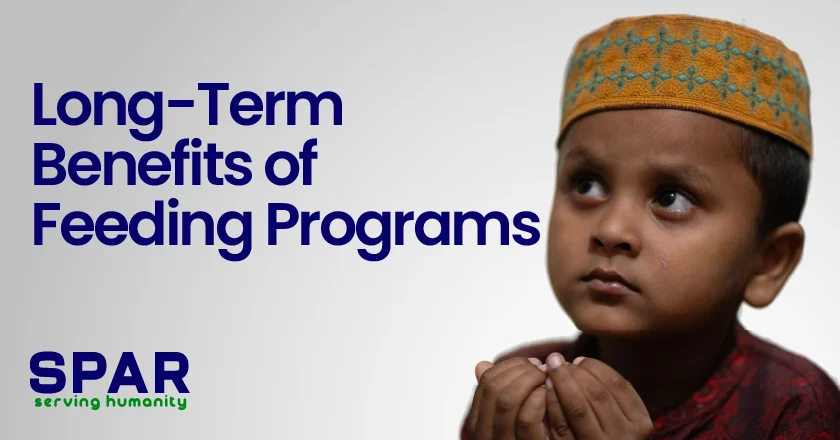
Long-Term Benefits of Feeding Programs
Feeding programs not only avert starvation for today; they have ripple effects for years.
- Improved school results—Healthy meals help kids learn.
- Reducing chronic illness and stunting leads to better health.
- Breaking the cycle of poverty, well-nourished children grow into productive adults.
- Community development—Healthy kids are tomorrow’s leaders.
When you sponsor a feeding program for orphaned children, you are investing in generations.
Stories of Hope Through Feeding Programs
There’s a story behind every plate of food.
- A boy in East Africa once skipped school for the first time, blaming it on hunger. After an intervention to join a feeding program, he found strength and went back to the classroom; now he aspires to be a teacher.
- In South Asia, a group of girls used to share one meal a day. Through consistent feeding support, they became healthier and more confident children who did well in school.
These stories show that your support makes a difference in people’s lives.
The Role of Education in Feeding Programs
Feeding orphans is only part of the solution. Educating them on healthy eating is the key to sustained success. Many programs also educate caregivers about:
- Educating caregivers on the importance of preparing simple yet balanced meals is another crucial aspect of the program.
- It is important to use local foods for nutrition.
- It is crucial to store food safely and maintain hygiene.
Education makes nutrition support sustainable.
How Technology Helps Nutrition Programs
Modern tools make feeding programs more efficient.
- Digital donation platforms make it possible for supporters to give on the spot.
- Tracking devices see to it that food travels via the most efficient route to get into the right kids’ hands.
- Reports and updates demonstrate to donors the effects of their support.
At SPAR Project, we leverage technology to keep donors engaged and programs accountable.
Challenges in Running Feeding Programs
Feeding programs face challenges too:
- Gaps in funding—Resources sometimes do not match needs when it comes to donations.
- It’s expensive—there is the cost of food, transportation, and staff.
- Overwhelming numbers—There are millions of orphaned children left to support.
- Problems in supply chains—Delays and timing affect the delivery of food.
Despite that struggle, the work goes on because children’s lives depend on it.
How You Can Help Sustain Feeding Programs
You don’t have to be rich to make a difference. Simple steps matter:
- Sponsor a single meal each day for one child or many.
- Give monthly donations to help maintain food programs.
- Partner, as a business or mosque, to sponsor larger-scale drives.
- Offer to assist with meal prep, packing, or serving.
Every action counts. One meal can change a child’s life, even just one.
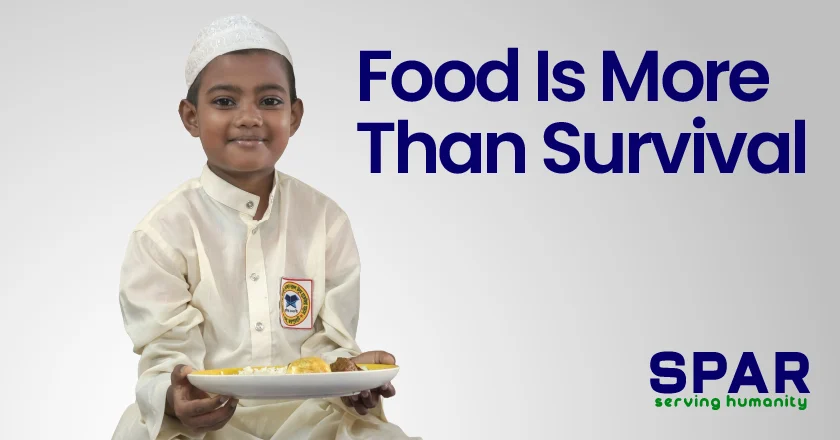
Final Thought: Food Is More Than Survival
Food for orphans is more than just nourishment. It is love, care, and hope. Support them by providing meals for orphan children, and give these kids more than just food; you give them a future. You can help a child grow strong, learn more, and dream bigger.
Take action today. We are thousands of individuals, each nourishing a unique vision for the future—join our growing movement to end hunger and cultivate health.
What is an orphan feeding program?
It is a coordinated effort by the government to feed orphans every day and also give them supplements and nutrition education.
Why are these programs important?
They had been fighting malnutrition, educating, and providing a sense of stability to children.
How does SPAR project manage the feeding programs?
We supply meals, food packs, and supplements through orphanages and community kitchens.
May I donate monthly to help these programs?
Yes. Monthly contributions enable consistent long-term planning and impact.
What kind of food do orphans eat?
Foodsupply.com provides food in the form of proteins, grains, vegetables, and clean water as a balanced diet.
Can institutions and mosques become involved?
Yes. Partners help to scale programs and reach more children.
What can I do today to help a feeding program?
Go to the SPAR Project donation page and select a feeding site you’d like to sponsor.
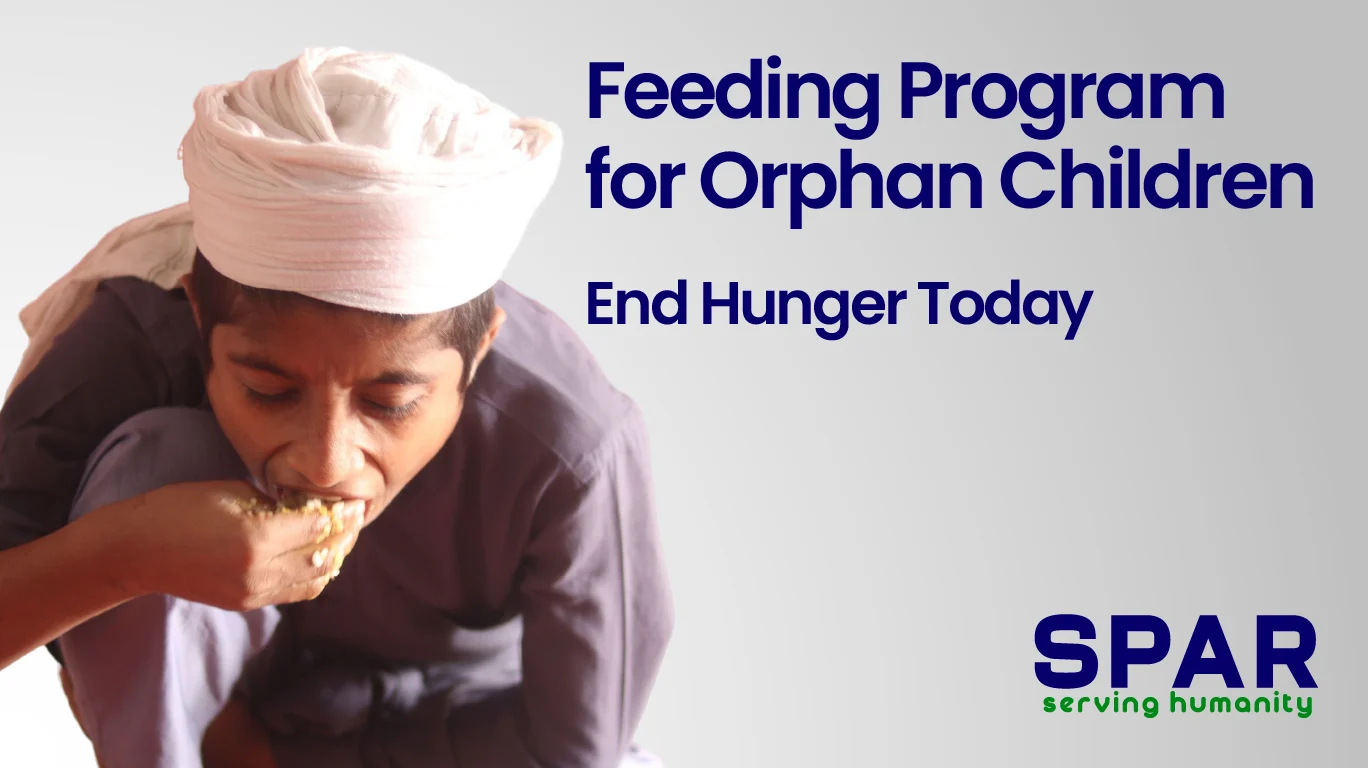
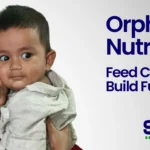

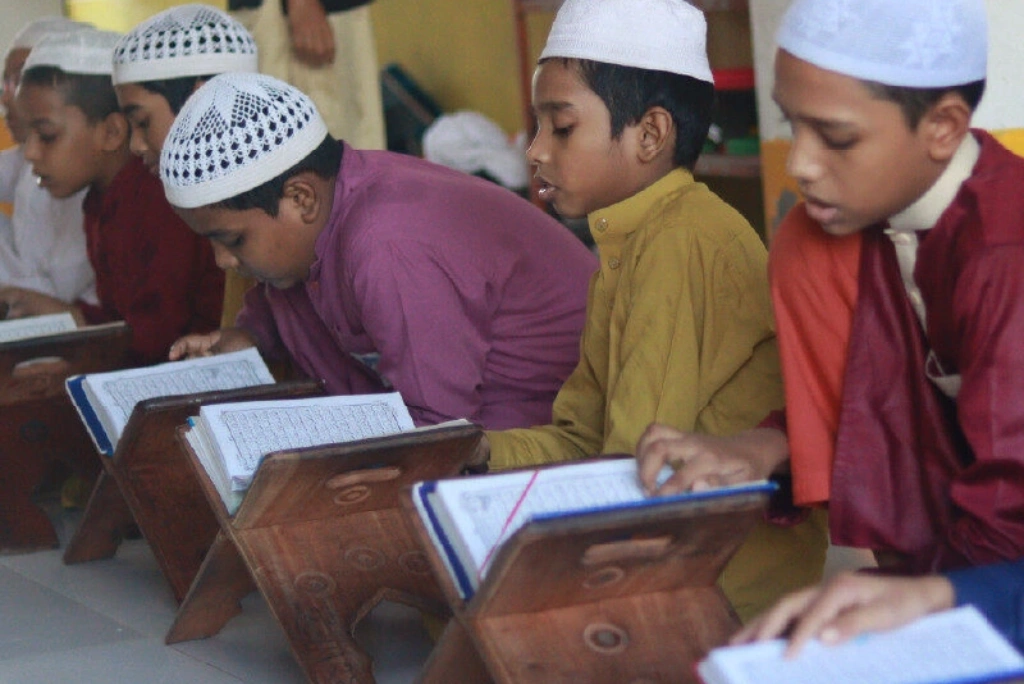
 Secure
donation
Secure
donation